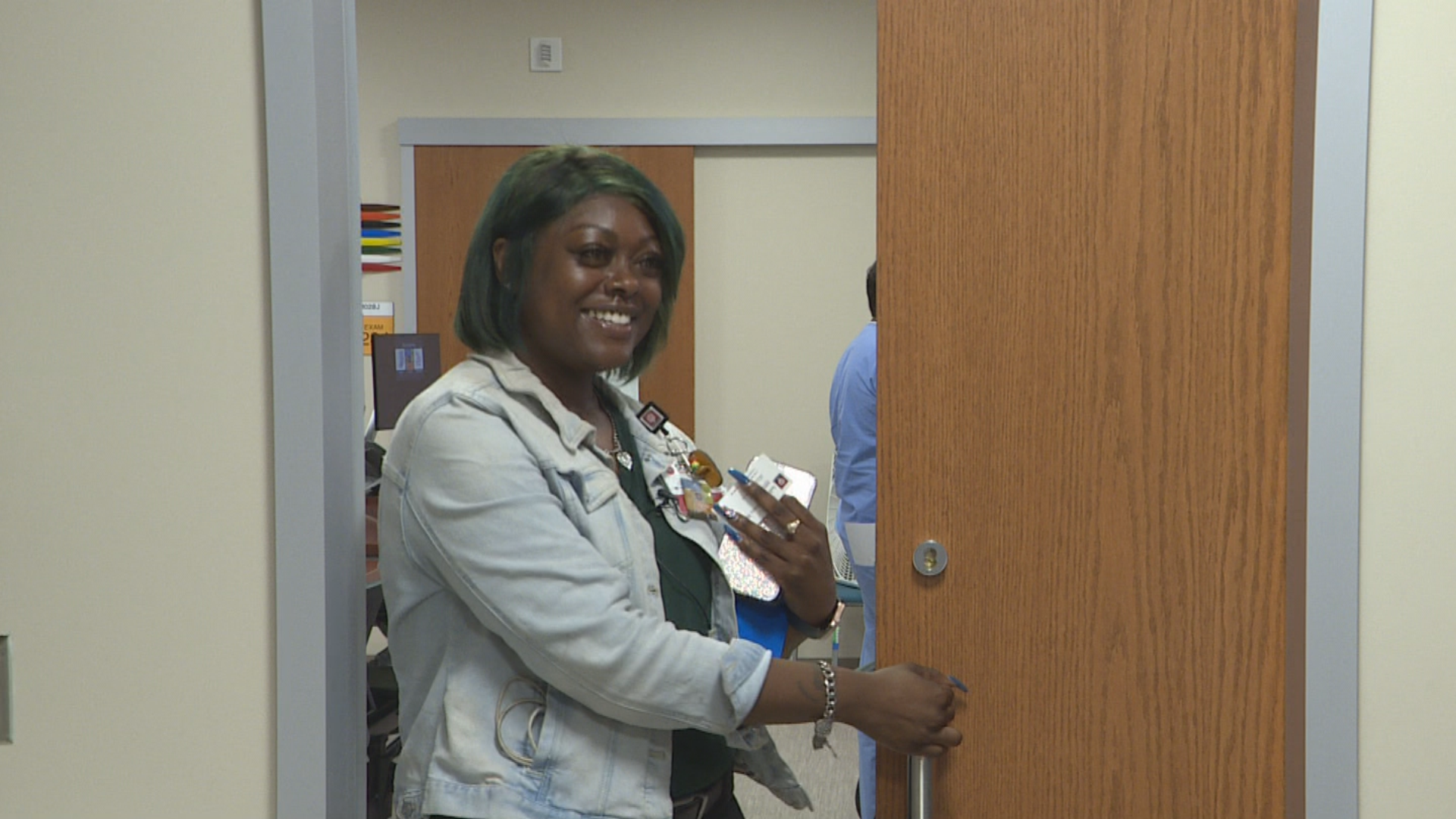Community medical workers taking health care beyond the doctor’s office
INDIANAPOLIS (WISH) — IU Health leaders on Tuesday said they hope a new approach to patient care leads to long-term savings and better health outcomes.
State lawmakers in 2021 set aside $50 million in American Rescue Plan Act funding to establish the Health Issues and Challenges Grant Program. Beginning last year, the Indiana Department of Health awarded grants to hospitals and nonprofits throughout the state.
In January, IU Health received $2.5 million for community health workers as part of the second round of grants.
The extra funding could mean backup for Kristina Hargrove. She’s one of roughly a dozen community health workers already on IU Health’s payroll. Officials said the grants will help them hire about a dozen more.
Hargrove provides free blood pressure screenings through IU Health’s iHEART program and said she uses those screenings as a springboard to talk about other barriers the patient faces.
For example, if a patient lacks access to healthy food, Hargrove said she will connect them with food pantries and other sources. Someone lacking transportation might get connected with organizations that provide essential transportation for free or a nominal fee.
“If you have any needs in the community, that’s where we come into play,” she said.
Hargrove said she works with about 120 patients at any given time through the doctor’s office plus another 500 or so she meets through community outreach events. She often takes calls from those patients after hours or on weekends.
She said she once worked with someone who was a caregiver and needed a phone, transportation, and food, and Hargrove was able to connect the person with services that met all of those needs. She said the patient still talks to her on a regular basis.
Nichole Wilson, IU Health’s vice president of community health operations, said those social determinants of health account for up to 80 percent of a person’s health outcomes.
Although programs exist to help people meet a variety of needs, Wilson said those systems often are confusing, so it’s more effective to meet people where they are, in their neighborhoods or a doctor’s office, and connect them directly with the services most likely to benefit them.
“We’re using this as a great opportunity to show proof of concept with a workforce that we haven’t yet utilized or maximized within the IU Health system,” she said.
Wilson said the community health workers will work all over the state, focusing on the areas with the worst health metrics. About half of the workers will focus on the iHEART program and the other half will work on infant and maternal health. She said IU Health leaders ultimately want to make community health workers a permanent part of their workforce.
IU Health isn’t the only organization to use the grants for community health workers. State records show Step-Up, Inc., an Indianapolis nonprofit that provides HIV testing and care, received $300,000 for community health workers in the same round of funding.
Arc of Evansville and Grant County-based Bridges to Health got community health worker grants as well. Grants also have been awarded to programs for asthma, cancer, diabetes and food insecurity. The state health department has until the end of 2024 to finish awarding the money.
The grant money runs through the end of 2026. Wilson said IU Health will track the health outcomes of people who work with community health workers compared to those that don’t.
Wilson said she hopes to demonstrate not only better health outcomes through the community health workers but also savings to hospitals and, ultimately, Indiana taxpayers as a result of fewer emergency department visits.
